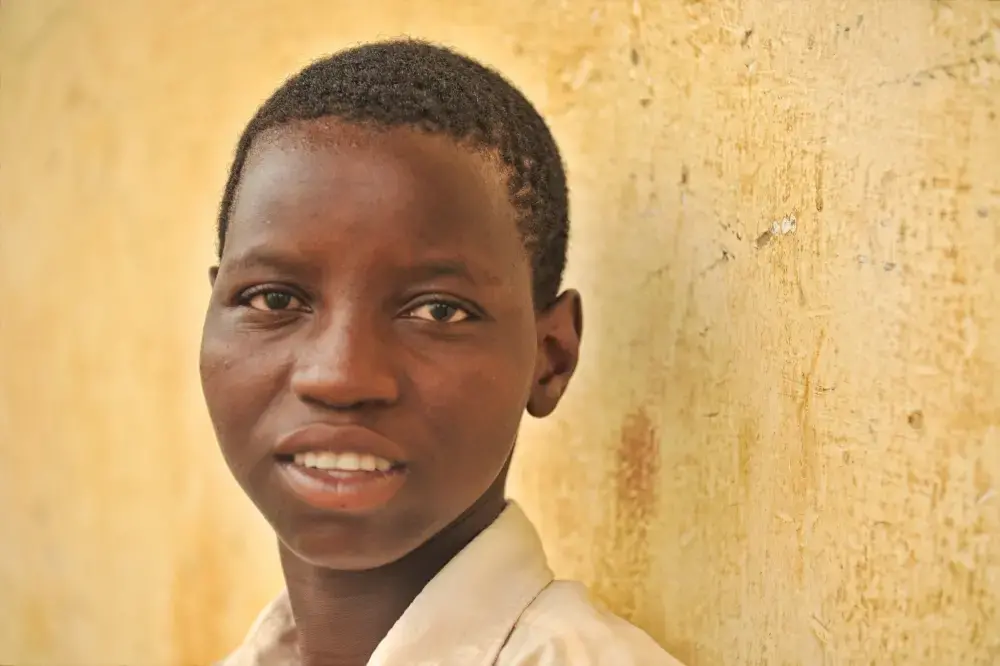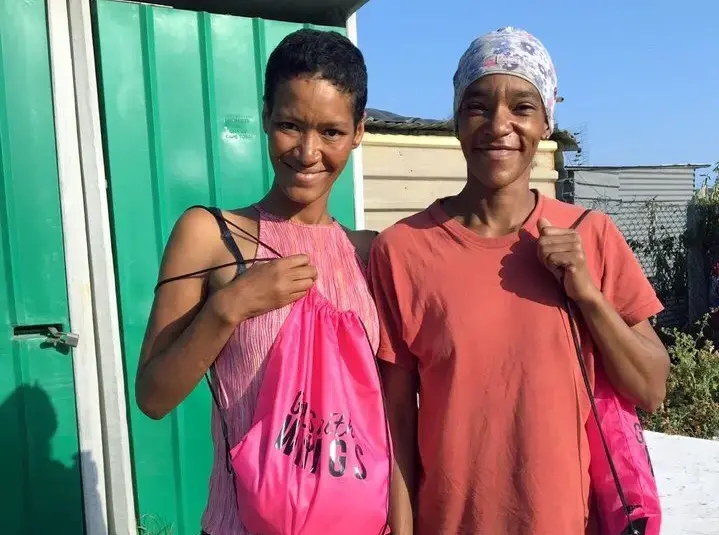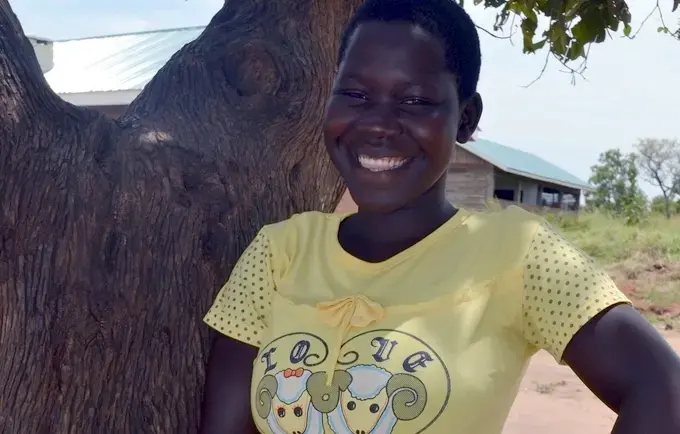LÓVUA REFUGEE SETTLEMENT, Lunda Norte Province, Angola—With a grin on her face, Marie Anny, 13, approaches. On any other day she would be taking advantage of the free time during school at Lóvua refugee settlement to play with her friends. But today, she can barely contain her excitement.
She is to receive a dignity kit, distributed at her school by UNFPA, the United Nations Population Fund, in partnership with UNICEF, the United Nations Children’s Fund.
For Marie Anny, the dignity kit is empowering. It helps her manage her menstrual hygiene and makes her feel more comfortable around other people.
“When I'm menstruating I usually use strips of absorbent cloth, but in the settlement it is difficult to get this cloth,” she says.
Menstruation is a defining moment in a girl's life, the world over. In an emergency setting the situation is no different but the challenges faced by girls and women in this respect are far greater. Limited access to hygiene products and reproductive health services exposes their vulnerability and limits their movement on a day-to-day basis.
I had my first period here at the settlement. I had no idea what was happening.
"I had my first period here at the settlement,” says Marie Anny. “I had no idea what was happening. My mother was around and asked if I knew what it was about. For me, that day was sad and shameful.”I
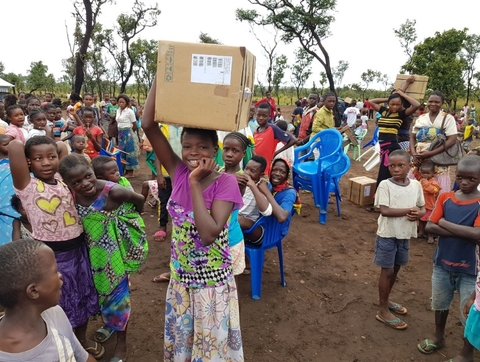
Poor menstrual health management has potential implications for
women and girls' reproductive and mental health. For refugees,
conditions are particularly challenging. © UNFPA Angola
Impact of poor menstrual health
For girls and women’s well-being, it is critical that they are able to manage their health and hygiene during menstruation. Poor menstrual health management negatively impacts not only their health, but their dignity, self-esteem and mobility.
In a crisis setting, in which basic activities that may be taken for granted are that much more critical for survival, the impact is potentially greater. It increases the risk of school absence and drop-out among girls, and has potential implications for reproductive and mental health. Good menstrual health management enables participation in settlement activities such as collecting food and water.
Also, if education about menstrual health management and puberty is given to girls at school, it presents an opportunity for building their knowledge about sexual and reproductive health – including HIV prevention, contraception, pregnancy and sexual and gender-based violence. Girls become empowered to make informed decisions that impact their lives positively.
Seeking refugee in Lóvua settlement
Since April 2017, with the outbreak of violence in the Kasai region of the Democratic Republic of the Congo (DRC), Angola has opened its doors to around 35,000 Congolese refugees, who have crossed the border into Lunda Norte province in search of shelter and protection. Women and children account for 77 per cent of the Congolese refugees from Kasai in Angola.
Lóvua is the newest settlement provided by the Angolan government to accommodate the refugees. Currently, it hosts around 14,000 people but the number is expected to rise to 25,000 with a further 11,000 refugees anticipated from urban area in the forthcoming months. Almost 24,000 refugees receive food assistance.
Working to empower girls in refugee settlements
In the extensive Lóvua settlement, UNFPA is dedicated to meeting the needs of girls and women of reproductive age. An important part of this work is the distribution of dignity kits, which include essential supplies - such as toothbrushes, toothpaste, shampoo, soap, sanitary pads and underclothes - to help them maintain their basic hygiene and enable them to participate in their usual activities.
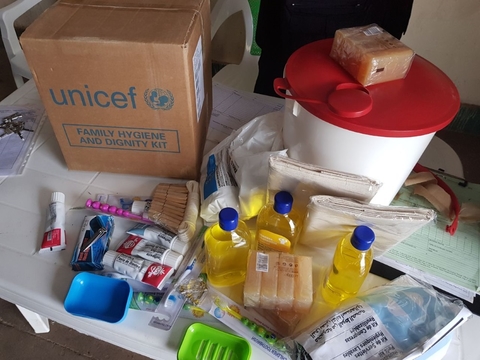
at women-friendly spaces in Lóvua refugee settlement, including 360
of them at Marie Anny's school with UNICEF support. The kits
contain essential supplies such as a toothbrush, toothpaste, shampoo,
soap, sanitary pads and underclothes. © UNFPA Angola/Luis Samacumbi
As part of the humanitarian response for DRC refugees in Angola, in April this year UNFPA in partnership with UNICEF distributed 360 dignity kits, which directly benefited 360 adolescent girls at the Lóvua settlement school. Since April last year, 8060 dignity kits have been distributed at women-friendly spaces in the settlement, with support from emergency funds. The distribution taking place at the school has helped expand access to the kits in the settlement, and brings women-friendly spaces closer to the girls and women in the vicinity of the school.
However, the need for the dignity kits remains as long as the crisis continues.
I take better care of my hygiene when I get the kit.
Like Marie Anny, there are more than 7000 girls and women of reproductive age in the settlement who are menstruating, and many more who will start their menstrual period each year, while living in Lóvua. They will require ongoing support.
Marie Anny is pleased to be a beneficiary of the dignity kit. It has helped restore her sense of dignity and improved her self-confidence, as well as her health. “I take better care of my hygiene when I get the kit that is distributed in UNFPA’s women-friendly space,” she says.
By Denizia Rocha Pinto


